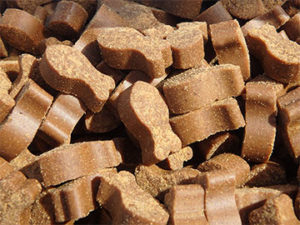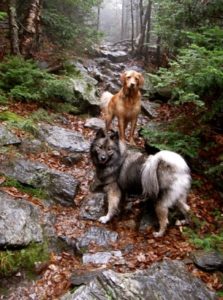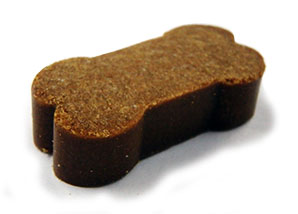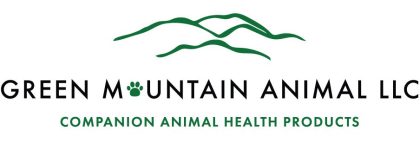Questions? Call Us Toll-Free 802-752-4738 | Email Us

All of your Animal Product Needs in One Place
 Located in Milton Vermont, we specialize in producing & packaging premium quality extruded products for dogs and cats. Our Product Development team is available to help you bring your new product ideas to market with an emphasis on safety & quality. We are pleased to offer low minimum order size requirements to facilitate the launch of new products for our customers.
Located in Milton Vermont, we specialize in producing & packaging premium quality extruded products for dogs and cats. Our Product Development team is available to help you bring your new product ideas to market with an emphasis on safety & quality. We are pleased to offer low minimum order size requirements to facilitate the launch of new products for our customers.

Green Mountain Animal, LLC is a complete one-stop shop for all your custom formulation needs for companion animal health products and treats. We are experts in innovative formulation and product quality with the ability to manufacture and source a wide variety of delivery options—including extruded chews, extruded sticks, tablets, capsules, powders, gels and liquids—for your unique product.
As a contract manufacturer of animal health products and treats, we pride ourselves on our commitment to quality and safety throughout the manufacturing process. Contact us today to learn how we can help you create your custom animal health product or treat.
Why Work with Green Mountain Animal, LLC?

- Science-based company led by seasoned industry and technical experts
- Custom formulations with low minimums and competitive prices
- Private label manufacturing of innovative, consumer driven products
- Core leadership in National Animal Supplement Council (NASC)
- USA-based manufacturer
- We keep our promises
Product Development
Our experienced product development team can assist you with formulating your custom products to make a product that dogs and cats will crave while working within your budget.
Samples
To ensure that your products meet your standards for flavor and texture, we will make small sample batches for you to review. We know your time is valuable so we pride ourselves on our ability to make samples quickly using our small laboratory equipment and our full size extruders.
Compliance
Dale Metz, CEO of Green Mountain Animal, is the Vice President and a founding member of the National Animal Supplement Council. With his 14 years of experience working with the FDA and Center for Veterinary Medicine, we can help you navigate the confusing world of regulatory compliance.
Palatability
Green Mountain Animal has relationships with many of the animal rescue groups in our area so we have an ample supply of taste-testers to give us feed back on our flavors. The best formula in the world will not do any good if the animals will not eat it!
Flexibility
We know that you have great ideas for your new products so our facilities allow for a variety of packaging options to suit your needs. Our equipment can handle small or large batch sizes so you do not have to make a major volume commitment when launching a new product.
Full Service
From formulation and ingredient sourcing to packaging and shipping, Green Mountain Animal does it all to provide you with a finished product that is ready to put on the store shelf.

See our main site at GreenMountainAnimal.com/
Blog Posts are Below:
Monthly Archives: January 2020
Joint Supplements for Pets

(Source)
Supplements help reduce the pain in our joints and repair damaged cartilage.
There is no denying that joint health is of paramount importance for not only us but for our pets to live happy and long lives. Functioning joints are what allow our pets to move around and run freely without experiencing any soreness or pain. However, our pets occasionally need a little boost to keep their joints healthy and functioning to the best of their abilities. Joints can become stiff with the passage of time, and eventually, you find that your once lively and fun-loving pet is spending a lot of time lying around idly. This is where joint supplements come into play and help provide the boost your pet needs to get back to their earlier energetic selves.
Does Your Pet Require a Joint Supplement?
The three primary categories of pets that require joint supplements are aged pets, pets who have already been diagnosed with joint disorders, and pets who are prone to joint disorders. It is most likely that your pet would benefit from a joint supplement if it falls under one of these categories.
Furthermore, if your pet is starting to show signs of joint pain or soreness, it would be wise to start giving them a joint supplement immediately. This is to prevent any further damage and to repair the damage their joints have already sustained.
That being said, how can you spot the signs that would tell you your pet has joint pain?
There are a couple of signs that could mean your pet is experiencing joint pain. For instance, if your pet is generally moving about in ways that are considerably slower than their usual behavior. Another sign is when your pet avoids playtime and no longer enjoys going for walks. Other symptoms include loss of weight, irritable demeanor, limping when trying to walk, and frequent biting or licking joint areas. Contact your veterinarian without further ado when you begin to notice a few of these signs.
Tips to Know Before Purchasing Joint Supplements for Your Pet
- Do thorough research by yourself. While there are plenty of great joint supplement products available on the market, it is not uncommon to come across a few substandard ones as well. Hence, it is best for you to purchase only from reputable and reliable sources. Moreover, since joint supplements for pets vary in ingredients and strength, it is very important to comprehend your beloved animal’s needs and find an appropriate product that fulfills those needs.
- The advantages of joint supplements will be most effective when your pet is already healthy and active. Even the most powerful joint supplement will not have much of an effect if your pet is overweight. This is because its joints will be exposed to added pressure under all that extra weight. To ensure that you maximize the joint supplements’ efficacy, make sure that your pet is getting plenty of exercises and is on a healthy diet.
- Always consult with your veterinarian prior to starting your pet on any sort of supplement regime or medication. This helps you gain a sound understanding of your pet’s specific needs and conditions. It is also crucial to closely monitor your pet’s behavior on a new joint supplement. Be sure to discontinue use at once if your pet exhibits any unfavorable side effects.

(Source)
What to Consider When Selecting a Joint Supplement for Your Pet?
An effective joint supplement should be able to support your pet’s joint health very well. Be it a dog, cat, or a hamster, consider the following when selecting a joint supplement for your pet:
Safety Concerns
Are the ingredients in the joint supplements safe for your pet to take? You can find the answer to this question by perusing the product recommendations and certification. If ever in doubt, feel free to reach out to your veterinarian.
Ingredients
It is precisely the ingredients present in the supplements that improve your pet’s joint health. Moreover, the exact type and amount of ingredients that every supplement contains may hold a lot of importance. You can consult a veterinarian to know which ingredients would suit your pet. Furthermore, be sure to check whether all ingredients have been scientifically proven to enhance your pet’s joint health.
Chondroitin, Glucosamine, and Perna are common ingredients usually found in joint supplements that help to prevent joint damage in your pet and provide relief that is caused by joint stress.
Ease of administration
It stands to reason that there is no point in buying a joint supplement if you cannot get your pet to eat it. Most joint supplements available in the market are chewable and come in various flavors. This is usually enough to convince your pet to give it a try. However, if your pet is picky when it comes to food, it would be in your best interest to keep the flavor in mind that your pet enjoys when you are searching for a joint supplement.
Final Word
The importance of picking the right joint supplement for your pet cannot be stressed enough. Do not hesitate to reach out to Green Mountain Animal, if you are looking for a joint supplement for your pet. We are a highly reputed contract manufacturer of custom-made animal supplements.
Dog Food Manufacturing
Since dog food is specifically formulated for consumption by canines and dogs, it is made with special ingredients. Although they are considered omnivores, dogs are also biased to being carnivores. They possess gastrointestinal tracts that are as short as are usually in omnivores and similar sharp, pointed teeth that suit meat consumption better than they do vegetable substances. Dogs also possess 10 genes that are responsible for glucose and starch digestion, as well as producing amylase, an enzyme that breaks carbohydrates down into simple sugars. Carnivores don’t produce the amylase enzyme because they rely on a protein-based diet more than anything.

Dogs, when being mere canines, sustained on mainly a carnivores diet and fended for themselves. Once they became domesticated animals and were adapted for protection, companionship, and work, people began to grow more thoughtful about their nutritional needs. This is how food came into existence.
Pet Food
Pet foods are made with a singular focus on the nutritional needs of domesticated animals. Pet food is made using meat, cereals, grains, meat byproducts and vegetable-based ingredients. Pet owners can choose from around 3000 and more pet food products. These include canned, dry and the semi-moist variety as well as snacks such as treats, kibbles and biscuits.
Dog food that is commercially produced takes its origin from biscuit-style, dry dog food that was first produced in 1860, in England. Soon after, manufacturers came up with more sophisticated formulas that contained necessary nutrients for dogs at that time. The beginning of the 20th century saw the emergence of pre-packaged dog foods. The meals initially contained dry cereals but after World War 1, manufacturers produced dog food made of horse meat. The 1930s brought canned food for cats and a special meat meal, sort of dry food for dogs.
The 1960s brought even more innovations such as expanded type and dry dog food, cat food and semi-moist pet food. The trends at the beginning of the 1980s saw greater demands in the pet food market for dry foods and lesser demands for the canned variety. Researches also discovered that gum diseases spread more quickly in dogs due to the consumption of soft canned foods in comparison to dry.
It was generally the increased health-related awareness among the masses that generated more interest in scientifically formulated and nutritious pet foods. These included therapeutic foods for animals with health issues such as urinary problems and weight loss, life-cycle products for aging and younger pets and etc.
Dog food manufacturers leaned more towards using less tallow and fatty tissue and more protein-rich tissue. The result was an increase in the popularity of the pet snack category owing to products like pieces in sausage shapes, kibbles (biscuit pieces), biscuits and jerky snacks.
Raw Materials for Dog Food Manufacturing
The primary raw materials required for producing dog food are byproducts of seafood, poultry, meat, soybean meal and feed grains. The animals used for rendering are house pets, horses and livestock and are those that have been put to sleep.

Animal parts that are used in the manufacturing of pet foods include bones, cheek meat, carcass parts, and organs like liver, intestines, lungs, stomach tissue, spleen, kidneys and udders. In order to improve the products’ consistency and to reduce the expense of raw materials, cereal grains such as cracked wheat, soybean meal, barley, and cornmeal are often used. Among the liquid ingredients are included meat broth, water and blood. It is also often necessary to use stabilizers, salt, gelling agents and preservatives. Gelling agents work to expand more homogeneity while the process is underway and also contain the moisture. They include carrageenan, guar and bean gums, thickeners, and some other starches.
To enhance palatability, flavors known as digests are used, which include sweeteners, fat, yeast, fish soluble and protein. Artificial flavors are generally left out but bacon flavors and smoke is often added to treats. Most manufacturers use minerals and vitamins to supplement pet foods because there is always a likelihood of some being lost in the process.
Each type of pet food consists of varying ingredients. Moisture constitutes the basic difference between dry and canned pet food. Since canned foods are made mostly from products of fresh meat, they, therefore, contain around 70 to 80% of moisture. Dry foods, on the contrary, contain only around 10% of moisture.
The dry foods also contain additional ingredients such as done and meat meal, corn gluten feed, oils, and animal fats. For dry foods to texturize like meat, it is necessary to use more proteinaceous adhesives such as casein, albumens and collagen, starch ingredients, or amylaceous and plasticizing agents.
Dog Food Manufacturing Process
The ingredients differ hugely, but the general manufacturing of pet foods is the same as processed foods. The products made with flesh in pet foods first have to be processed or rendered so that the protein, fat, and water contents can be separated. Outside companies generally render the meat and then ship it to pet food manufacturers . When meat products have to be used for canned foods, it has to be delivered fresh and used in no later than three days. For dry foods, manufacturers may use frozen meat products.
Grinding and cooking flesh and flesh byproducts are integral in the manufacturing process. Then, meat and other ingredients are mixed together, and if required by the recipe, shapes are formed from the mixture. The finished product is then packed into containers and passed on to the distributors.
For premium quality products for your pets, contact us.
GREEN MOUNTAIN ANIMAL LLC
75 Catamount Drive
Milton, Vermont 05468
802-752-4738
drmetz@grnmtnanimal.com
ctomat@grnmtnanimal.com
